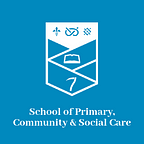Knowledge mobilisation: Growing knowledge together
Written by Laura Swaithes
arch 7th saw the start of a two-day event in Bristol for the UK Knowledge Mobilisation Forum. For those of you who don’t know, knowledge mobilisation is the process of getting the right information, to the right people, at the right time, and it is a large focus of the implementation work undertaken by our own Impact Accelerator Unit, led by Professor Krysia Dziedzic.
The central theme of the forum was ‘Let’s start a conversation’ and the organisers made a point of hosting an ‘un-conferency conference’ to encourage creativity and collaborative learning. The informal atmosphere coupled with a quirky venue set a great environment for networking with an array of delegates. The venue was an old fire station, now functioning as a young person’s centre (run by the creative youth network), and still had many original features including a sloped floor in the main hall, designed for the draining of water when fire engines returned from a job.
One of the opportunities to showcase work in the field of knowledge mobilisation was an ‘Interactive poster session’, of which Dr Sue Ashby and Laura Swaithes (supported by Professor Krysia Dziedzic) represented Keele presenting two of the 12 selected posers. The interactive nature of the poster session involved delegates leaving comments/questions on each poster for the presenters to respond to in an open conversation slot, which stimulated lots of interesting discussions. One of the key themes from both posters was the role of patients and the public in knowledge mobilisation.
All delegates were paired up and invited to arrange a ‘Randomised Coffee Trial’ (RCT) which was another networking opportunity that bought health researchers together with people working in law, surveying and other industries to facilitate cross-discipline learning.
Then came the creative stuff! A fantastic session on co-production pushed us outside our comfort zones by using plasticine, Lego and other ‘Blue-Peter’ style items to embrace service design thinking in a different way. This was an enlightening session that demonstrated a unique way of how knowledge could be mobilised between academia, healthcare practitioners, and policymakers to create a space to understand and communicate real-world practical knowledge. Believe it or not, some really interesting messages came from this creative display!
Another example of alternative approaches to knowledge mobilisation came in the form of a fishbowl conversation focussing on the barriers to translating research into practice and how we overcome them. For those of you who have never heard of, or participated in a fishbowl conversation, in essence, it is a bit like a focus group with an inner circle of four chairs, and an outer circle of (in our case) approx. 25 chairs. Three people sat in the inner circle and started a conversation about the chosen topic, with only one person able to talk at a time, if they were holding Dory the fish! This created a light-hearted atmosphere and added a comedy element to the process. If at any time someone from the outer circle wanted to contribute to the conversation, they could take a seat in the inner circle and one of the three people there had to move back to the outer circle.
Whilst it initially appeared as if it could be slightly daunting, after getting involved, it became clear that it was a really useful process that enabled great dialogue, time for reflection and consideration, and generated huge amounts of data in a small space of time. If you want to find out more about this technique take a look at http://www.betterevaluation.org/en/evaluation-options/fishbowltechnique
Overall, it was a great event for sharing and learning as well as embracing some inner creativity! We received lots of positive comments about our work and hope to be back next year flying the flag for Keele again. In the meantime check out the UK Knowledge Mobilisation Forum http://knowledgemobilisation.net/about/ for latest news and tweets.
